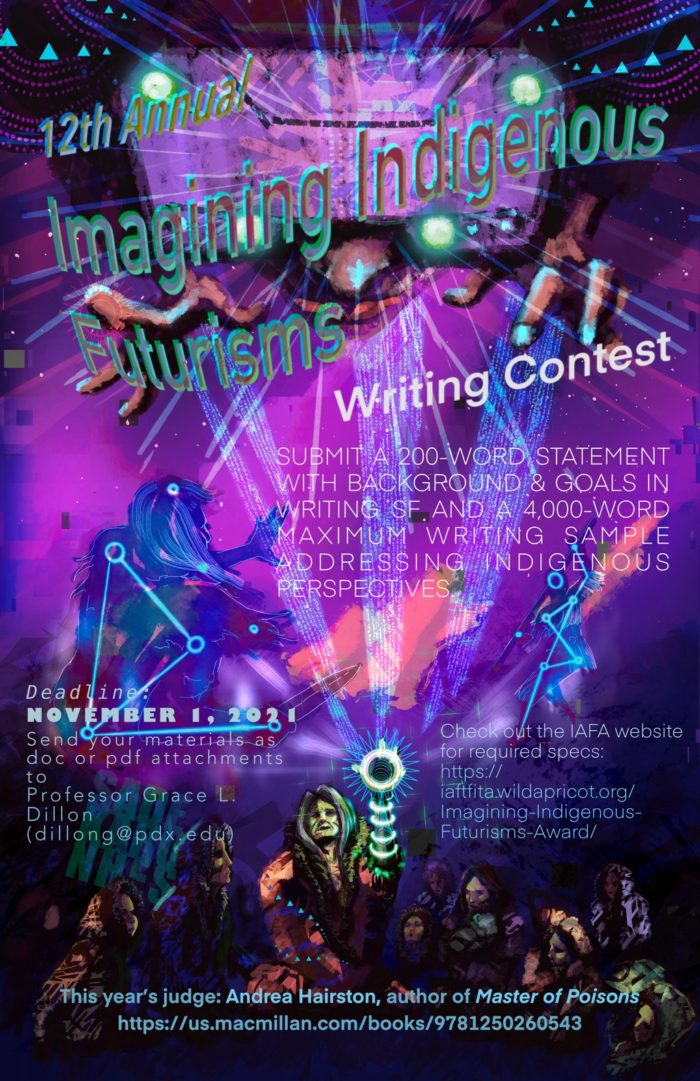There are still a few more days to submit to Trans/Inter/Cross: A Symposium on The Fantastic Between Genres, Media, and Cultures
October 1-3, 2021
Marriott Orlando Airport Lakeside
Orlando, Florida
*Submissions Portal closes 1 June 2021*
The genres of the fantastic have always existed at a crossroads between forms: from Brian Aldiss’s contention that Mary Shelley’s Frankenstein creates the first science fiction novel from the bones of The Gothic to Brian Attebery’s definition of fantastic literatures as “fuzzy sets” made up of modes rather than genres. These blurred boundaries manifest themselves in many ways. Most obviously they may be seen in the various arguments over where fantasy ends and science fiction and/or horror begins. They are also present in the Anglophone literary and mediatic characterization, classification and appropriation of traditions beyond the Anglophone axis, creating and working in a contested space. In a similar vein, cross-media content creation no longer points to a singular source, as narrative creation occurs across lines traditionally drawn around media types. Ludic, graphic, textual, visual, and performance-based arts intertwine and converse across those lines to create transmedia. This phenomenon exists in the context of the deluge of content creation, and the diversity of this transmedia enriches the canonized material of a franchise or text (used broadly). However, for many, strict definitions of genre and media remain, and lines of inquiry remain bound while source materials transcend labelling. These fraught dynamics are further deepened and complicated by narratives of diaspora and intercultural identities, such as those by Deepak Unnikrishnan and Nnedi Okorafor. This symposium seeks to examine these notions of boundaries and further the conversation and discourse raised by new approaches in conversation with established methodologies.
In a 2015 conversation published by New Statesman, Neil Gaiman and Kazuo Ishiguro discuss the arbitrary taxonomy of genre and how economics have impacted the reception of genre regarding the inventiveness and development of new technologies. If genre already maintains such a precarious position, might it be useful to apply the kind of critique that Judith Butler leverages in Gender Trouble to it and beyond genre to culture? By building on the work of global futurist scholars such as Bodhisattva Chattopadhyay, can we further theorize about not just “gender trouble,” but “genre trouble,” and “culture trouble” that creates a space where these amalgamations can be fully explored and the lines between distinct and hybrid forms interrogated?
Drawing on discourses surrounding intersectionality, intertextuality, adaptation, and transmediation, which highlight the interrelationship and interdependence of texts as products of and producers of culture, this symposium will trouble these waters and explore what happens when we think and talk beyond the boundaries (both assigned and self-created) that separate us and focus instead on what can be gained from interlocution across and between defined spaces of engagement. We welcome paper session and panel proposals addressing these and related questions across any genre, every language, and across all media of the fantastic.
Possible topics might include, but are not limited to:
challenges inherent in writing across genre boundaries in an industry whose market relies on genre categories
crossroads as physical and/or metaphorical space
encounters between genres, modalities, cultures, and epistemologies
genderqueer, transgender, two-spirit, nonbinary, and intersex bodies and identities
global fantastic narratives which cross genre and/or physical boundaries
the hybridization of identity across multiple cultures/locations/worlds
intersectional feminisms and the destabilization of categories
multi-media or transmedia
narratives of diaspora and/or transformation that cross boundaries of taxonomy
texts that focus on transcultural, intercultural, and/or trans-species communication
theoretical perspectives and texts that challenge accepted notions of genre
the transcendence from virtual/secondary/created world to primary/ actual/ “real” world
The IAFA Portal is open for submissions and will close on 1 June 2021. To submit a proposal, go to https://www.fantastic-arts.org/submit-a-proposal-to-iafa-2021-tic-symposium/ .
For questions about academic or creative programming, please email us at symposium@fantastic-arts.org .
Submission process:
Session proposals will be reviewed by a committee and may comprise of:
proposals for fully-formed sessions featuring three 15-minute paper presentations (one paper presenter should agree to serve as chair)
proposals for fully-formed panel discussions which include scholars and/or creative presenters
proposals for fully-formed sessions where authors and artists share their creative work and/or offer panel discussions on creative topics
proposals for roundtables discussing a text or texts with a specific focus
proposals for workshops focused on some aspect of the symposium topic.
All submissions must adhere to the theme of the symposium. The event will run on limited capacity, so inclusion in the program is not guaranteed. Any submission that does not respond to the theme will not be considered until a possible second round of review.
Unlike ICFA, registration for the symposium for all presenters and attendees will be a flat fee of $100 that will include several meals. A small block of rooms for this special symposium will be available at the amazing rate of $109 per night.
More information forthcoming at https://iaftfita.wildapricot.org/.
Dates to remember:
The Submission Portal is open now.
Submissions will be due 1 June 2021.
Registration will open 15 June 2021.
All Registration ends on 5 September 2021.
Follow us Twitter @IAFA_TW. Our symposium hashtag is #IAFACrossings.
“Like” us on Facebook: https://www.facebook.com/FantasticArts/.
 The IAFA Imagining Indigenous Futurisms Award recognizes emerging authors who use science fiction to address issues of Indigenous sovereignty and self-determination.
The IAFA Imagining Indigenous Futurisms Award recognizes emerging authors who use science fiction to address issues of Indigenous sovereignty and self-determination.